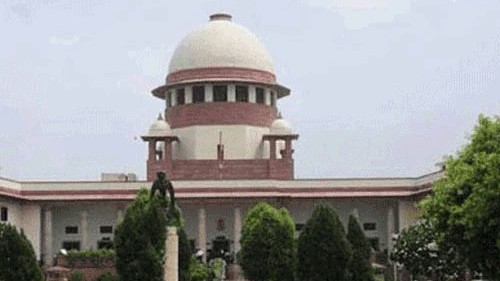
The Supreme Court of India
Credit: PTI File Photo
New Delhi: The Supreme Court has favoured for adopting a zero-tolerance approach against the police officers, who bring shame to the entire justice delivery system by committing high handed acts and abusing their position of power.
A bench of Justices Vikram Nath and Ahsanuddin Amanullah issued a general direction to the police forces in all States and Union Territories as also to all agencies endowed with the power of arrest and custody to scrupulously adhere to all constitutional and statutory safeguards and the additional guidelines laid down by this court when a person is arrested by them and/or remanded to their custody.
The top court directed payment of compensation to a man, who was hand cuffed, paraded half naked with garland of footwears and verbally abused with reference to his caste under the Scheduled Castes and Scheduled Tribes (Prevention of Atrocities) Act during his police custody.
Appellant Somnath alleged then police inspector C P Kakade also deliberately delayed his release from jail despite bail after his arrest for offence of pick pocketing in 2015 in Paithan in Aurangabad, Maharashtra.
The bench said the court has no hesitation in strongly denouncing such high-handed action by the officer who being in a position of power, totally abused his official position.
"This court is forced to restate the principles and directions in D K Basu Vs State of West Bengal (1997)," the bench said.
Since the officer has retired and already paid a sum of Rs 1.75 lakh to the appellant, it would like to give a quietus to the matter, the court said.
The bench said also noted the appellant was additionally paid Rs 25,000 as per the order by the National Human Rights Commission.
In its March 18 judgment, the bench, however, emphasised, "In such matters the courts need to take a very strict view. A zero-tolerance approach towards such high-handed acts needs to be adopted as such acts, committed by persons in power against an ordinary citizen, who is in a non-bargaining position, bring shame to the entire justice delivery system."
